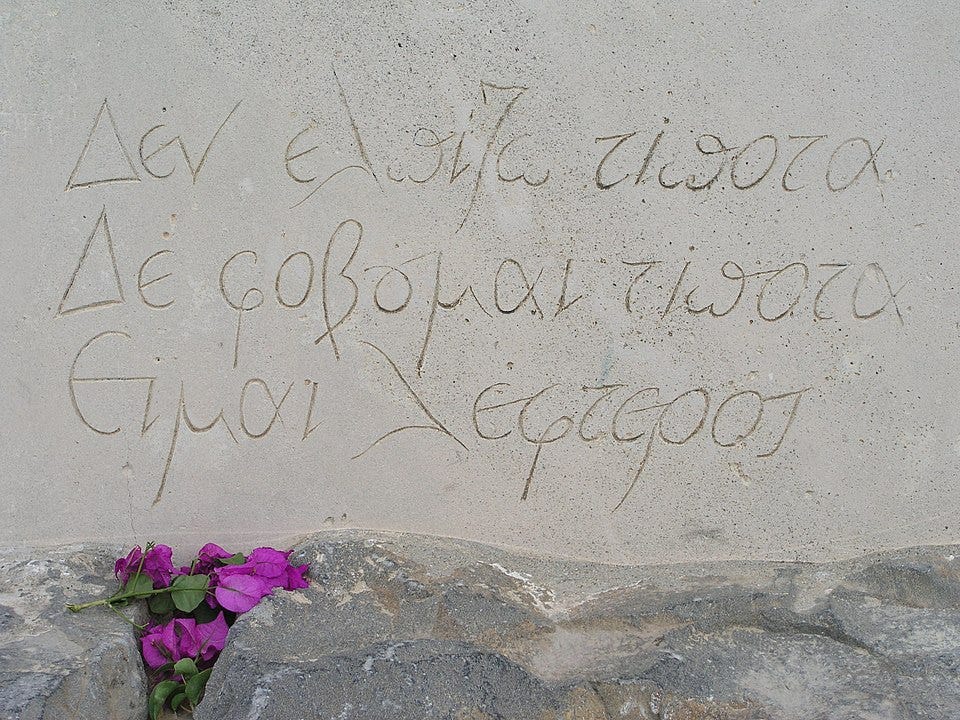Ascesis: Salvatores Dei | Spiritual Exercises
Cross-Pollinations #4: The Saviors of God - Nikos Kazantzakis
Nikos Kazantzakis (1883 - 1957) was a Greek writer, journalist, politician, poet and philosopher. Widely considered a giant of modern Greek literature, he was nominated for the Nobel Prize in Literature in nine different years, and remains the most translated Greek author worldwide.

Ascesis: The Saviors of God is a series of "spiritual exercises".
The introduction sets the sacred tone of the book, which goes beyond philosophy and metaphysics and underpins the whole work.
I first read this book in my late teens, after devouring most of the author's other works. I understood what it was about but could not grasp the entirety of its depth. I read it straight through in one sitting. It’s not that big, but it is deep and impactful nevertheless! “I’ll need to reread this in a few years,” I thought. This book has been inside me since, and it found its way to my hands again only a couple of months ago!
Here’s the book’s introduction translated into English. I’ve made a few changes from the officially published English version to better capture what I believe is the author’s vibe.
We come from a dark abyss; we end up to a dark abyss; the in-between luminous interval we call LIfe.
Right away once we are born, the return begins; at once the setting forth and the coming back; in every moment we die. That’s why many have touted: The goal of life is death.
But right away and once we are born, also begins the struggle to create, to compose, to make matter into life; in every moment we are born. That’s why many have touted: The goal of ephemeral life is immortality.
In the temporary alive bodies these two currents grapple: a) the ascent, towards composition, towards life, towards immortality; b) the descent, towards decomposition, towards matter, towards death.
Both currents spring from the bowels of the primordial essence. In the beginning life is startling; like illicit it appears, like contrary to nature, like an ephemeral counteraction to the dark eternal fountains; but deeper down we feel: Life is itself without beginning, an indestructible force of the Universe.
Otherwise, where does the beyond-human force come from that hurls us from the unborn into the born and heartens us—plants, animals, humans—into the struggle? Both currents are holy.
Our duty, therefore, is to grasp the vision that holds and harmonizes these two enormous, timeless, indestructible drives; and with this vision to modulate our contemplation and action.
If you want to make a personal comment—not visible to the whole world—you can do so in the dedicated private chat thread.






Sounds interesting. Thanks for the read. I might look into it.